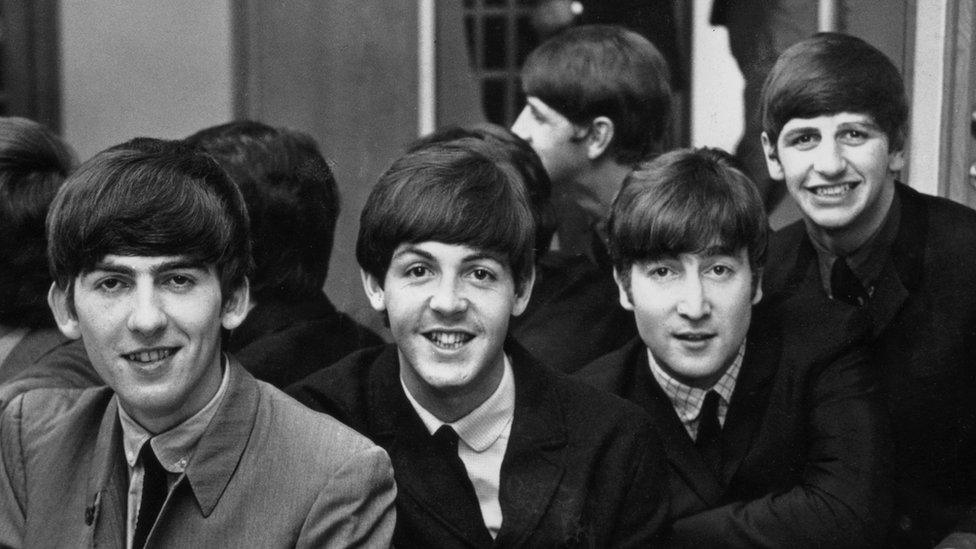Revolver artist Klaus Voormann on The Beatles and 'mop tops'
- Published
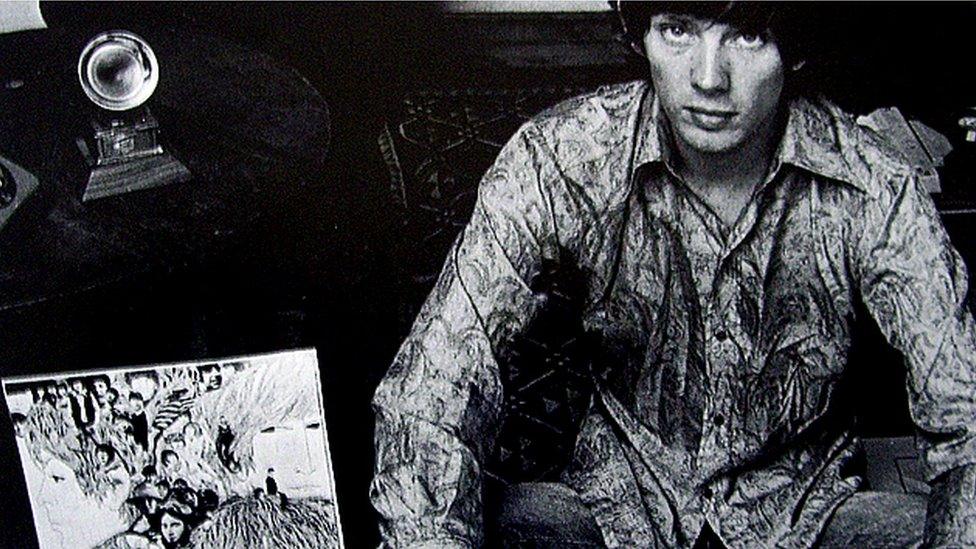
Voormann with a copy of Revolver and the Grammy Award he won for its cover design
Fifty years ago, The Beatles released Revolver, an album which saw them move into a more experimental musical world. The band's manager Brian Epstein wanted an album cover that would help fans make the journey with their musical heroes. So the band called on an old friend to help - graphic designer and musician Klaus Voormann.
The artist, who has now produced a graphic novel about his time with the band, said he is still surprised he was chosen to create the cover for Revolver.
"I was sitting in the bath in my tiny flat in Hampstead when I got the call from Paul," he said.
"He said 'Klaus, the new album... got any ideas for the cover?'
"I just couldn't believe they were asking me to do it.
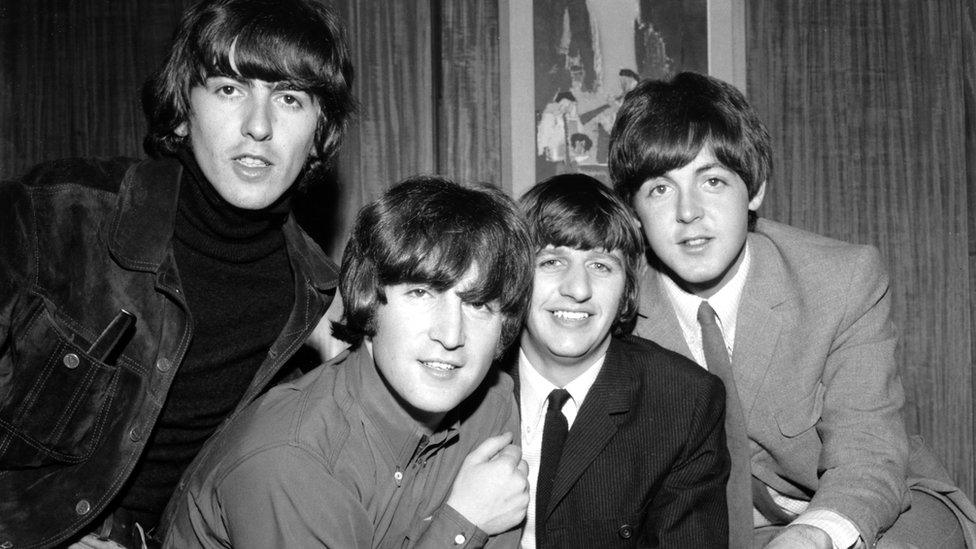
Voormann first met The Beatles in Hamburg, where he inspired their famous 'mop tops'
"They invited me down to Abbey Road to listen to the tracks - I was just blown away, floored by what I was hearing.
"I thought I was dreaming - Tomorrow Never Knows with its backward looped tapes and bird cries. It was something totally new."
Revolver combined the swirling psychedelia of Tomorrow Never Knows with the dark complexities of Eleanor Rigby, and signalled the shift away from the bright and shiny pop of the Fab Four years.
The album cover needed to reflect that change.
Three weeks after he got the call from McCartney, Voormann was back at the London studios showing off his designs to the band in the canteen during a tea break.
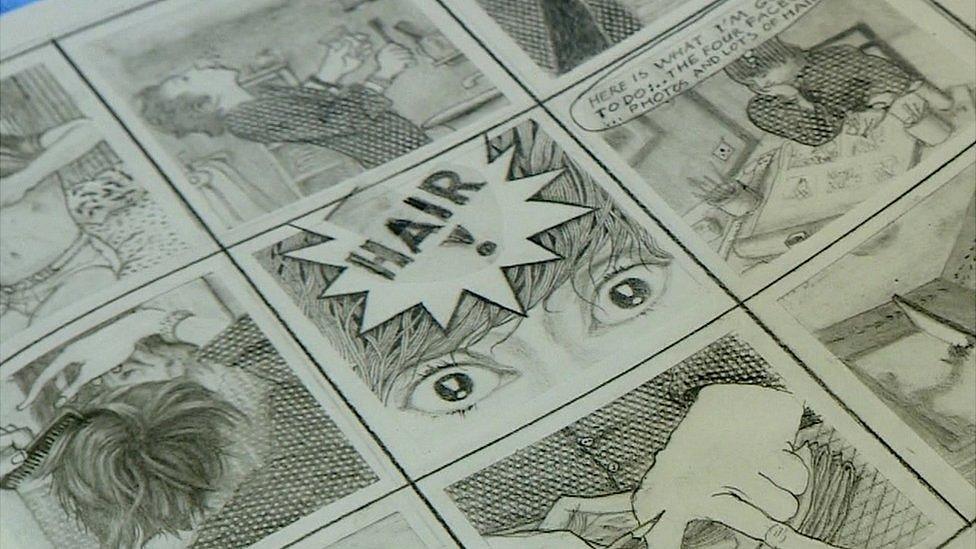
Voormann's work, Birth Of An Icon: Revolver 50, tells the story of his time with The Beatles
"I had about 15 different designs on a big sheet of A2.
"There were all sorts of weird things but the design they went for was the one I hoped they would.
"I used the band's fantastic hair, those flowing lines, to get me started and everything followed from that."
It is no surprise he was drawn to their locks, as he was partially responsible for them.
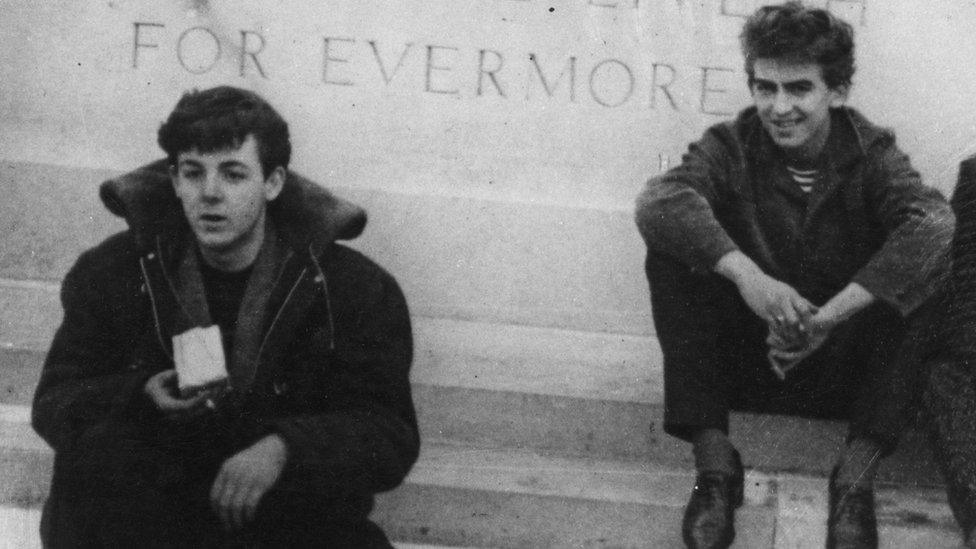
The Beatles had a more rock and roll look when they first arrived in Hamburg
In Hamburg in the early 1960s, he was drawn into the basement of the Star Club by raw and raucous rock and roll.
Inside he found The Beatles, though not as the world would come to know them.
"When we saw The Beatles for the first time, we were scared - we thought they were tough rockers who might attack us.
"The music was incredible though - fresh and direct. Just imagine what it was like to hear Paul singing Tutti Frutti for the first time.
"My friends and I were sort of mods - jazz fans with swept forward hair and suede jackets."
Voorman became friends with the Fab Four, who adopted his "swept forward hair" as their famous "mop tops".
As taken as the band were by his later interpretation of their hairdos for that Revolver cover though, he admits there were details that did not make the final cut.
"In one corner, I had Paul sitting on a toilet - they asked me to change that one.
"And a picture of myself - John spotted that one and said 'Klaus, you cheeky beggar'."
Mr Epstein was delighted with the end product - Voorman says he thought the cover would help the fans understand the new direction the band were taking.
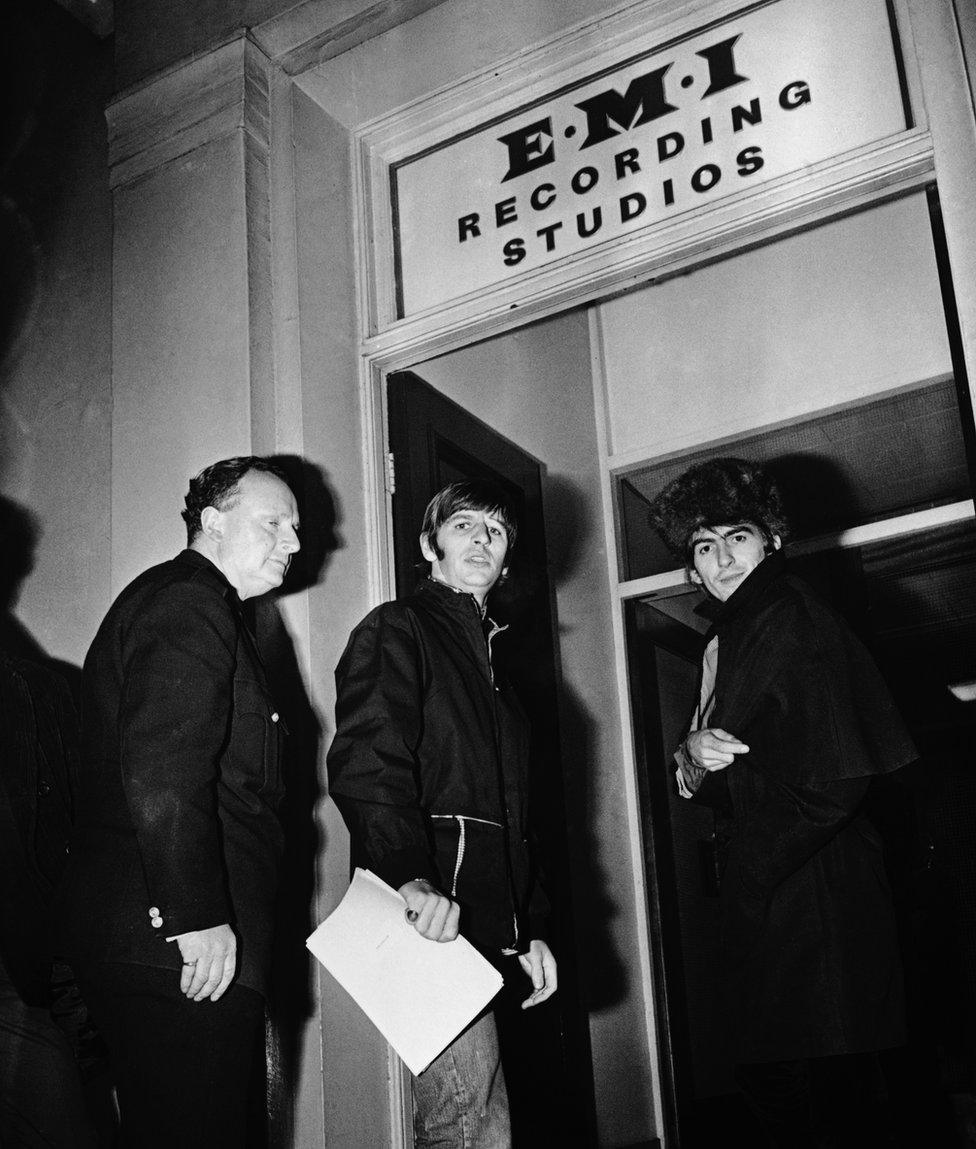
Voormann visited Abbey Road Studios to hear Revolver while it was being recorded
Voormann himself had been through something of a transition too - he moved to England after meeting The Beatles and lived with George and Ringo for a while while finding his way in the music business as a bass player, eventually joining Manfred Mann.
Being so close to the band, he says he could see how their future was going to pan out in the months after the recording of Revolver.
"They'd all gone in different directions and you couldn't keep them all under the same hat anymore.
"It was sad but it was inevitable."
Voorman went on to become the "go to" session bass player for solo Beatles projects, performing with George Harrison at the Concert for Bangladesh at Madison Square Gardens and with John Lennon in the Plastic Ono Band, a group which he says changed the often acerbic singer for the better.
"I loved John but sometimes he could be hard [and] sarcastic with people.
"Yoko changed that. After he was with her, he changed and became a nicer, more gentle person."
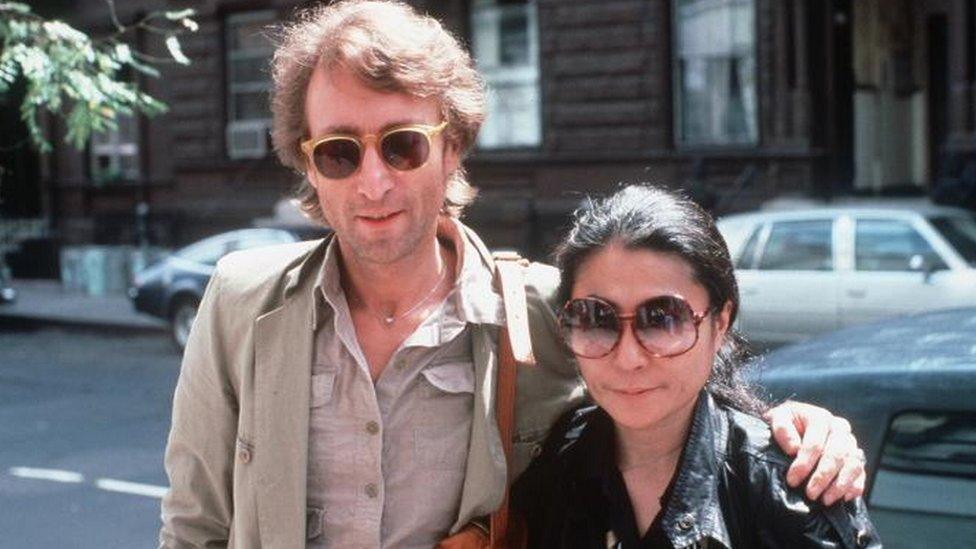
Voormann says being with Yoko Ono made John Lennon a better person
His fondness for Lennon was such that he says he still gets "upset when I think about his death".
"I remember, not long before he was killed, meeting him at the Dakota Building [in New York].
"He had [his son] Sean in a backpack and we walked across Central Park.
"It was nice but at the same time, I remember feeling uneasy.
"I thought 'this is a dangerous city, something could happen to him'."
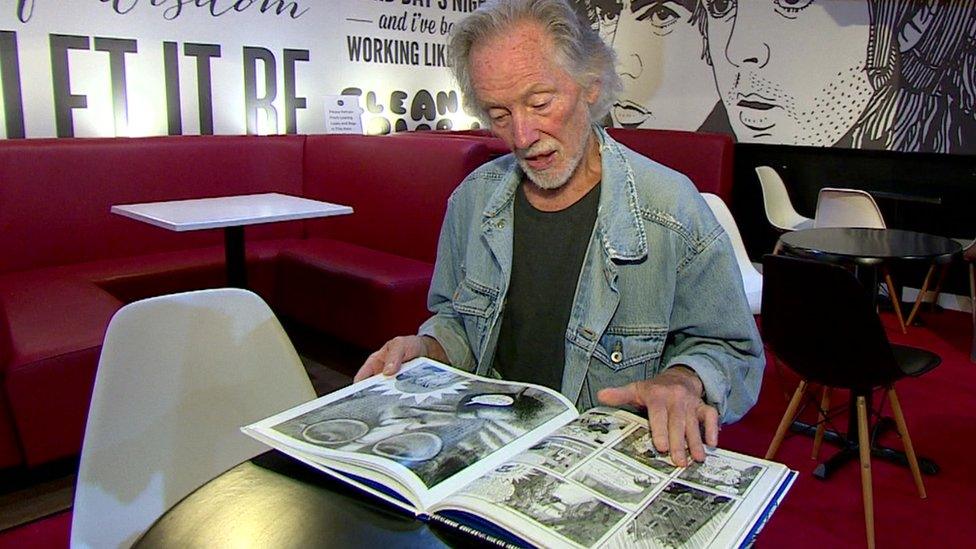
Voormann was at Liverpool's The Beatles Story to launch his graphic novel
Something, of course, did - and Lennon's death robbed the world of any possible reunions.
Voorman is convinced it also robbed the world of any chance to see a band as fine as The Beatles again.
"There are great bands and there will be great bands in the future, but nothing like The Beatles.
"They will die and we will die as will all those who were around at that time but the songs will live on.
"It was a moment of magic that we'll never see again."
Klaus Voormann's Birth Of An Icon: Revolver 50 is out now.
- Published24 May 2016
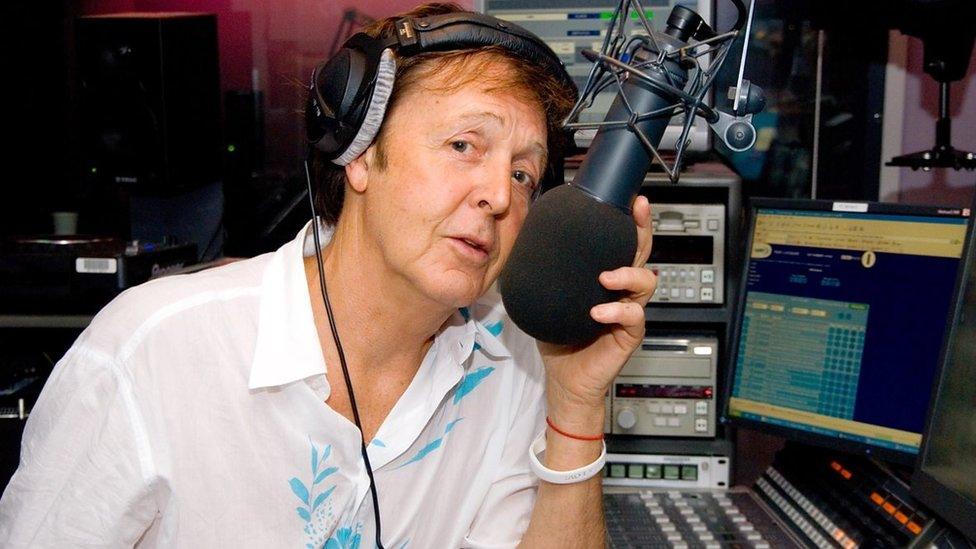
- Published9 March 2016
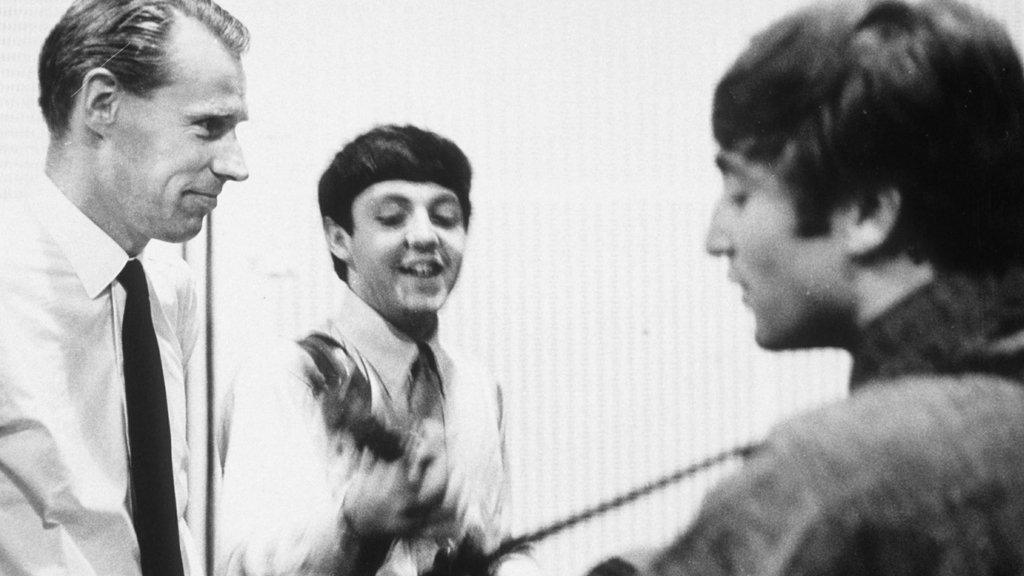
- Published21 February 2016
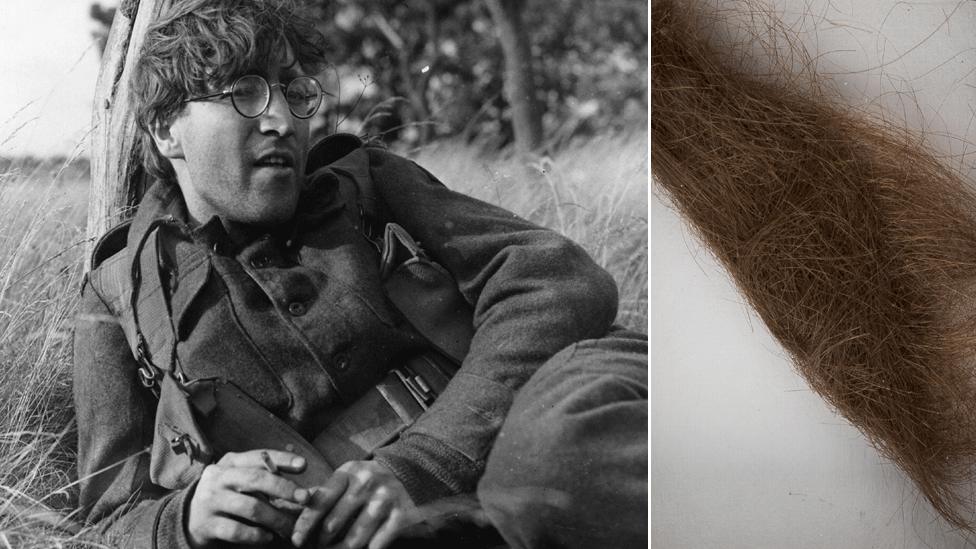
- Published15 February 2016
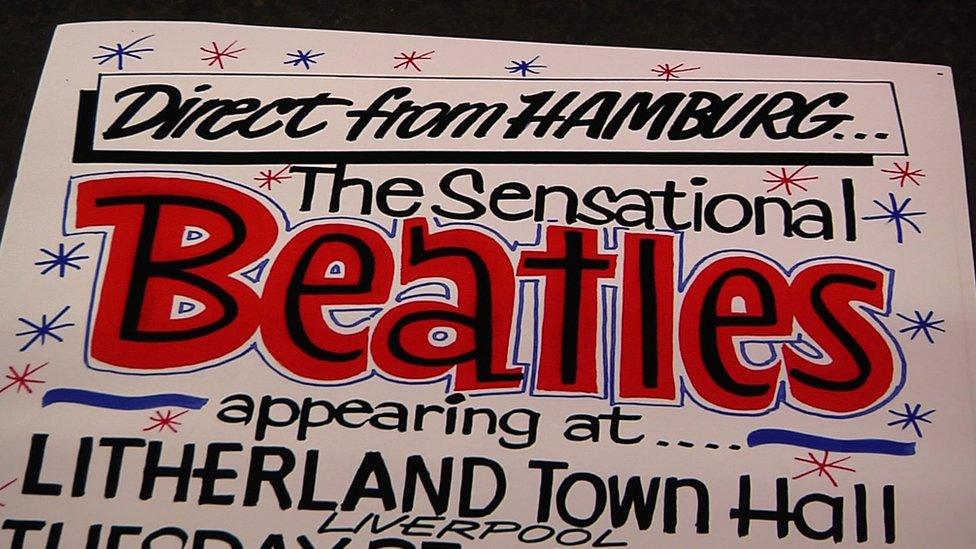
- Published8 February 2016
